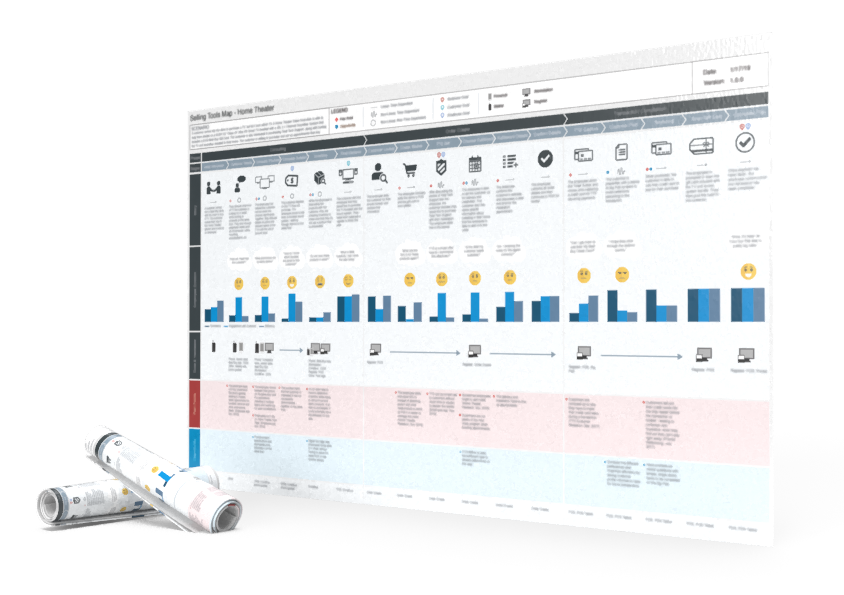Mobile App & Selling Tools
Client: Best Buy
Brief: As a UX Research Specialist at Best Buy, I have been supporting an employee facing mobile application while working tangentially with other tools and services related to sales operations.
High Level
Goal.
Support improvements made to tools and services used by in-store employees through research and strategy initiatives.
Opportunities.
Drive exploratory, post-launch and concept testing research initiatives with the business teams.
Facilitate workshops with the business and create journey maps.
Establish a baseline of employee selling tool research.
Recommendations Provided.
Enhanced usability.
Strategy and prioritization of future features.
Research Process
Phase 1: Scoping
To me, scoping research consists of identifying goals, setting objectives, determining methodology, and providing a vision for the end result of your work. All of this means communicating with your team as much as it takes to make sure everyone is in alignment throughout the process.
I do this by meeting both formally and informally with team members and planning out the project in advance. Throughout this intake process, I am looking for what the team needs to know to have confidence moving forward, and I collaborate to identify how we might gain this knowledge.
Phase 2: Conducting Research
Once the team has aligned on a strategy for getting the information they need, it comes time to conduct the research. Some methodologies I have used include:
Observations
Interviewing
Usability Testing
Concept Testing
Secondary Research
Surveys
Phase 3: Analyzing Data
As a researcher, this has been one of my favorite aspects of the process - synthesizing and analyzing data. Since much of my past experience deals with quantitative data, I have enjoyed the chance to focus on a lot of qualitative studies. Making sense of rich information and tying together concepts and patterns in a way that is easily digestible and actionable to others is really the crux of being a researcher to me.
Phase 4: Consulting the team
Once research has been synthesized and can be passed along to inform and make recommendations, the job becomes to facilitate a shared understanding of the findings and continue to consult as needed with the business and other stakeholders.
Journey Mapping & Workshop Facilitation
Why make a map?
Cross functional collaboration.
Alignment across the organization on a common story.
The distribution of research findings.
An opportunity to address pain points.
A unique perspective - starting from the view of the employee instead of the business.





